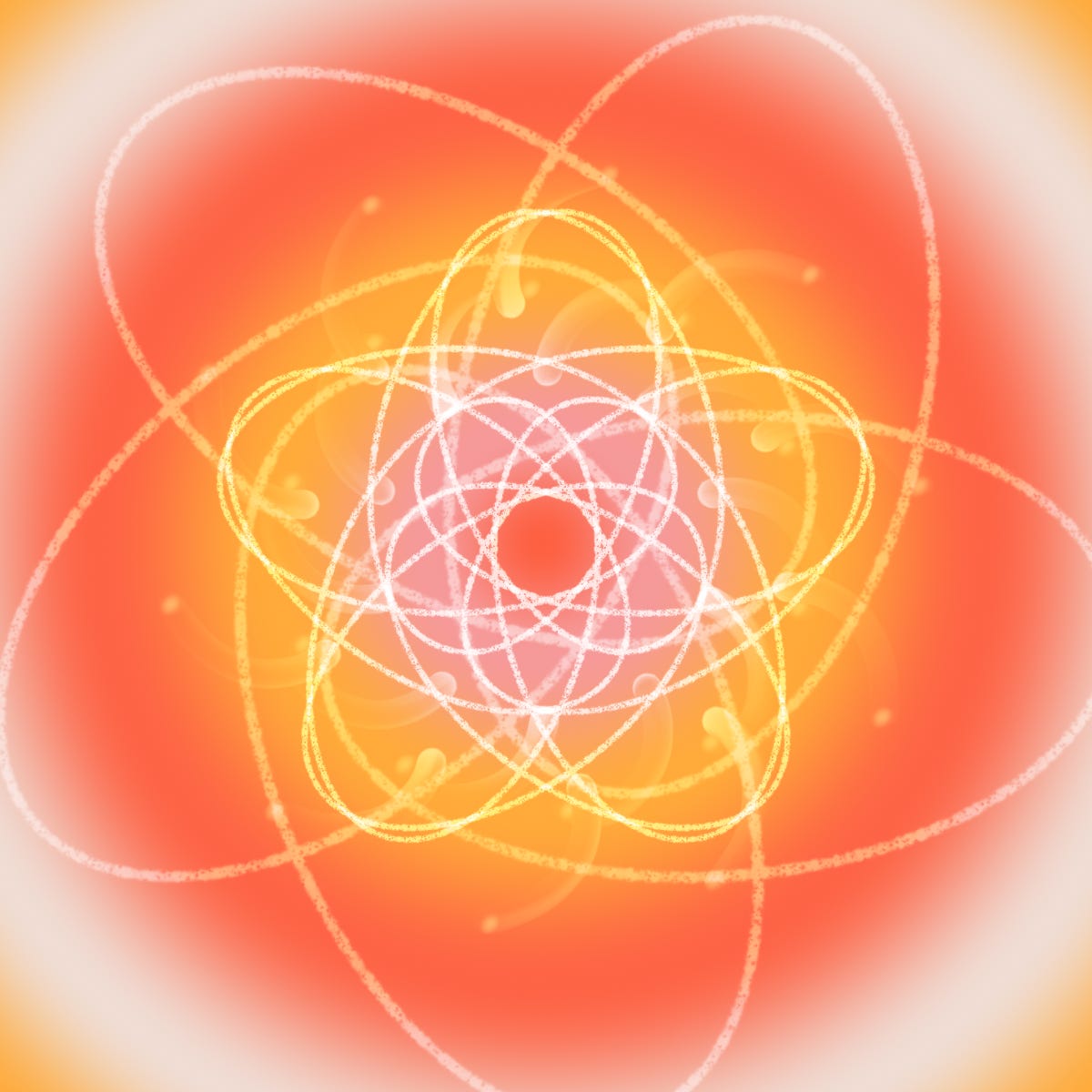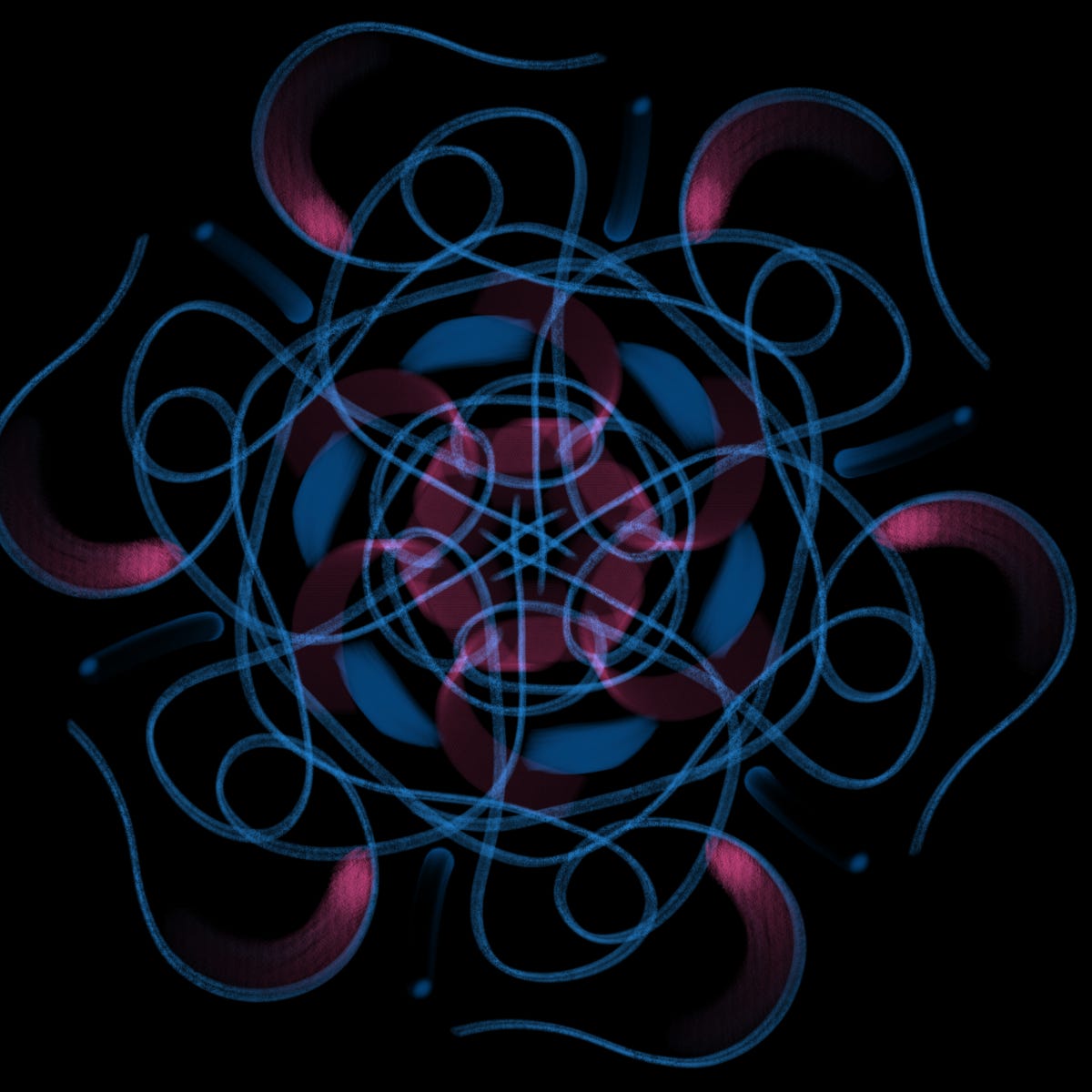Nightswim
When I sense that our daughter has dropped off to sleep, I ease myself quietly out of the cabin and pursue the path down through the darkness of the forest, carrying my towel. The canopy is sparse and a moonless sky glitters with stars overhead. The tracks are so familiar that I can get around without a torch.
Down a gentle slope, treading slowly over the shadowy ground so as not to trip over any stones, I approach the sauna. You have been inside the last half hour, kindling the fire to maximum heat, but awaiting my arrival before laying on the steam; I can hear a discourse from the Buddha emanating from a portable speaker within.
The sauna is but one of many wonderful things that you have made: its earthen walls are all formed of sand and clay from the land, the timber details from fallen trees. You turned an old fuel drum into the brazier, repurposed a big metal tube for the chimney, and stuck our old satellite dish on top for the roof. The three circular windows set inside the curved walls are old glass tabletops.
There are a few stone steps leading towards the wooden doorway. I enter swiftly, careful not to let the heat out, and the recorded discourse resonates loudly within the earthen chamber. When I sit down upon the timber bench, you pour a ladleful of water blended with eucalyptus oil onto the brazier, releasing plumes of fragrant steam. I sit and breathe.
We sit for a long time, just listening to the teachings. Sweat is pouring from us, and the concentration of steam is almost suffocating after a while; but when it gets too extreme I just lay down on the bench, feeling the coolness of the timber upon my bare back. Drops of condensation fall from the the roof. When it gets to be very hot, my mind loses its focus and I do not hear very much of the recording any more.
Eventually, when I can no longer handle the heat, I move towards the door. The steam will fly out after me, so you stand up to follow my lead. Outside you take my hand as we breathe in the first lungfuls of fresh air: we look up at the sky, at the wisps of canopy waving darkly overhead, and you lead me down the path towards the river.
I have lived beside this river for seven years, sleeping and awakening to the swirl and gush of is gentle course; its voice is as familiar as my own thought stream, its shifting currents as near to me as my own blood. But I have never swum in it by night before. We tread the rough trail downhill amidst a gentle thrum of insects, the padding of pine needles softening our footfalls.
As we approach the riverbank, the subject of the teaching we are listening to turns to the purpose of the dharma: an analogy is drawn between living without the dharma and someone who gets caught in the current of a river whilst trying to cross it.
I have reminded you many times that everything we cherish and hold dear today, we will have to let go of and be separated from. In not too long a time, I will also pass away.
Therefore, I urge you to practice being an island unto yourself, knowing how to take refuge in yourself, and not taking refuge in anyone or anything else.
Practice taking refuge in the island of the Dharma. Know how to take refuge in the Dharma, and do not take refuge in any other island or person.
An island has formed in the middle of the river and we put the speaker down upon it. The nearby rapids echo against the mountainside and the feeble electricity from distant lamps gleams against your front teeth as you flash me a quick smile.
Still pulsing with the heat of the sauna, now we submerge our bodies in the cool black stream. The water drowns out the sound of the discourse. I hear the quickening pulse of my own heart, the circulation rounding vigorously throughout my system: the shock of adapting to the sudden coldness, the thrill of it. My head rises to the surface, facing a clear view of the Milky Way overhead, I let out a laugh from deep down in my belly.

Now you are perched on a big stone on the other side of the river, and I swim over to sit on a rock beside you. We are gazing at the stars, listening to the peal of the rushing river, and feeling a surge of living joy spark our hearts into wonder at the impossibly beautiful scene we are part of.
We take each other by the hand again, and we invoke the name of our beloved son as we always do when things are too beautiful to describe. It is impossible not to remember him when we are connected like this, when what we are experiencing seems immaculately placed and deeply stirring; when the threshold between life and death is revealed as part of the illusion.
Now we talk about what we have lived through, about the meaning of our experience. It all seems so clear beneath the glimmering starlight: here is love, here is the peace of nature, here is the call to purpose that connects our hearts. In this truth we take refuge — that our lives have meaning, that our pain is transitory, that the world is precisely what we make of it.
But we have grown chilly, so we stand and wade through the the shallows to the opposite bank. At such moments it feels as though the body is an encumbrance, that it would be simpler to shuck away the mass of flesh and flow like vapour through the atmosphere. Now my thoughts have grown dreamy; I am ready for bed.
As we start up the hillside I think of all the blessings we share. There is our little girl sleeping, who connects us to earth, and the angel we love who turns our hearts towards heaven. We take refuge in the dharma; it is our way of life. This awareness creates an island of stillness in the river we are traversing, hand in hand.
Listening
The journey of partnership is a practice-based exploration of how to listen to truth. No matter how loving and committed a partnership is, in a moment of conflict the person you love most will use everything they have against you. When we commit to loving unconditionally as a way of life, inevitably we meet the conditions that we hold unconsciously to limit our exposure to the pain of loving.
Somebody is in a Mood. Whether it is you or I is not consequential for this purpose — we all know what a Mood is like. Whoever is caught in it has an emotional truth to convey, and the Mood makes the positions of victimhood and blame feel like a complete reality. Thus: “You never clean the dishes properly,” or “I always have to tidy up after you.”
‘Never’ and ‘always’ in the discourse of partnership are great indicators that an emotional truth is wanting to be conveyed. The words themselves don’t stand up to logic: the Mood is inevitably selective in its memory, drawing its evidence of past offences only from previous iterations of the Mood. Even so, the Listener has a choice in such moments: to take the criticism personally, or to remain unconditional.
Let us suppose that I am feeling stressed or worn-out and so take the Mood personally. I react to your complaint with contrary evidence: assuming the haughty eloquence of a defence lawyer, I assert my righteous conduct. You react again, and a drama ensues — the Mood has won us both over, and nobody is even trying to listen to the truth anymore. We are both victims, both perpetrators, and the situation is Wrong.
Here’s the alternative ending. Let us suppose that I have sensed the Mood coming and have already been making an effort to listen to the truth it wants to tell. When complaints arise, I make no resistance: I am listening not to the words, but the feeling behind them. That means I don’t use your speech as a weapon against you in conflict. This allows me to hear what you are trying to convey, what basic need is not being satisfied for you right now.
In listening to your emotional truth — what feels true for you right now — I am seeking to meet to the psychological truth that has brought it about. This is not the same as diagnosing or naming the cause of your pain, for whenever I assess or define an unmet need on your behalf it is a sure sign that I am not listening to the truth you are trying to tell me.
The listening requires me to take on your truth as my own, even when it is painful for me to do so: even as it conflicts with the comfortable assumptions I hold about myself and my motivations, my sense of what is right. When a psychological truth is exposed through the dynamics of partnership, by choosing to listen on this level I am needing to confront things that I would rather not about core elements of the reality I have chosen to live out.
As we unpack deep grievances, those truths are often merciless: the trust and understanding that we hold sacred with each other are twisted and distorted beyond recognition by the psychological games we play with one another. Although I would prefer to retain my composure and equanimity (to uphold the moral highground, of course) it is more than likely that I will start getting reactive at this point in a conflict.
Let us suppose that things have got heated and ugly, and let us suppose that we have said our regrettable things and made the usual threats and now all of that is out of the way. When we have got the sense of betrayal off our chests, and we have exposed our shame and guilt over past misdeeds, and we have confronted our despair about the hopelessness of the situation, then what happens?
Another truth emerges, a shared truth. We might call it love, or surrender to a higher power. We might even name it Christ’s Mercy or Sat-Chit-Ananda. The key is to keep listening through a conflict until it reaches this point, until this truth eclipses all the others before it.
In committing to remain unconditional, we invite this mercy into our lives as the truth of our experience; this quality alone is what allows us to release our positions and to live in partnership without the weight of buried grievances. Above all, it gives us the strength we need to find peace with ourselves and each other.
Love takes enormous patience: it grows over time, but it needs truth to sustain it. This is precisely why we take refuge in the dharma, for in the midst of a conflict it becomes the slender thread that we pursue to return to the reality that exists outside of the distortions and assumptions we habitually tell ourselves.
In that way, reconciliation becomes a creative act. Rather than one of us passively absorbing the positions of the other in order to subdue the Mood, such moments of conflict bring everything up to the surface so that we may connect with the core truths that underlie our experience.
The greatest gesture of love is a willingness to listen to truth, even through conflict. In this, one’s consciousness of Self grows through the presence of the other: for when the screen of projections drops away from the relationship, then the light of essence shines forth with renewed brilliance. We are relating.







Thank you dearest friend for invoking this wisdom through your intimate space and sharing it with us. I feel like I needed to read this sublime meditation on partnership and what it means in both times difficult and easy. Many blessings to you and yours 🌼💜
Your wisdom weaves through your poetry. Thank you for writing and sharing with us.